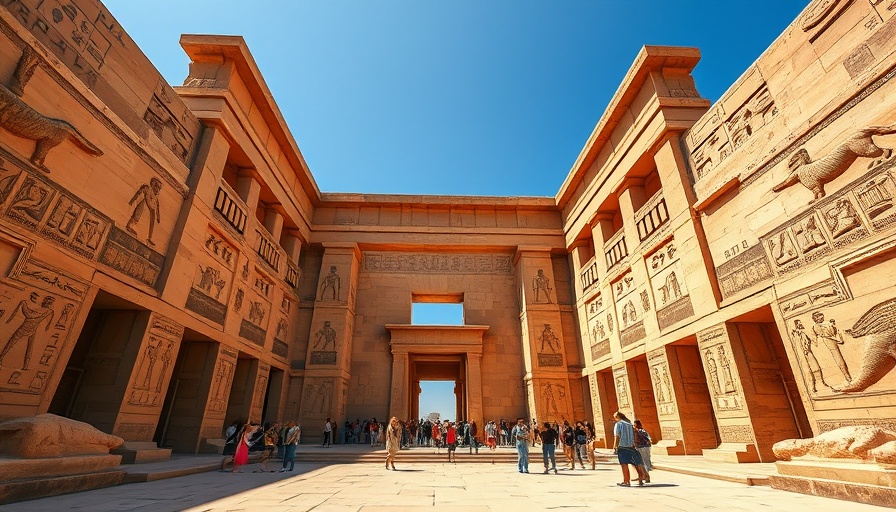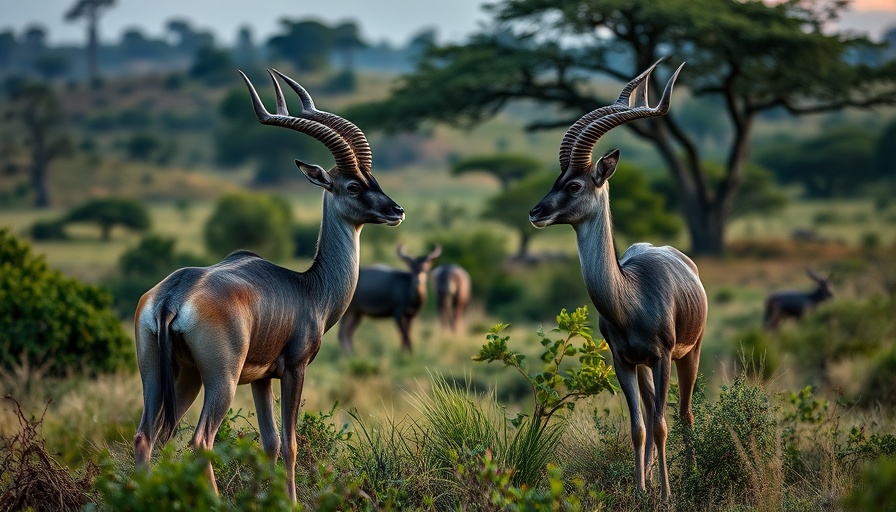
Explore Ancient Wonders: 7 Must-See Ruins in Africa
Africa, a continent overflowing with history, culture, and natural beauty, is home to some of the most remarkable ancient ruins in the world. From complex structures that defined empires to lesser-known sites that tell the story of human evolution, these remnants hold mysteries and marvels that beckon travelers with a thirst for adventure and knowledge.
1. Adam’s Calendar: The African Stonehenge
Known affectionately as the ‘African Stonehenge,’ Adam’s Calendar in South Africa is believed to be over 75,000 years old, making it one of the oldest known man-made structures on Earth. Discovered accidentally by a pilot in 2003, this megalithic stone calendar is a fully functional timekeeper, revered by local Shamans as ‘Inzalo Y’langa’ or ‘Birthplace of the Sun.’ It stands as a symbol of Africa's influential role in human history, predating famous sites like Stonehenge and the Great Pyramids.
2. Khami Ruins: A Testament to Creativity
Located in Zimbabwe, the Khami Ruins are sophisticated remnants of a kingdom established in the 15th century, reflecting intricate architectural styles reminiscent of Great Zimbabwe. The structures feature unique chevron and checkered patterns that display the craftsmanship of the era. As a UNESCO World Heritage site, Khami boasts the longest decorated wall in sub-Saharan Africa, making it a cultural treasure worth visiting.
3. Kilwa Kisiwani: The Heart of an Empire
The island of Kilwa Kisiwani off Tanzania's coast once served as a critical center for a powerful empire. This site showcases diverse Islamic architectural influences, with structures like the Great Mosque—East Africa’s oldest standing mosque—and the expansive Palace of Husuni Kubwa, which was the largest building in sub-Saharan Africa. Kilwa offers visitors a glimpse into the wealth and history of East Africa’s past.
4. Luxor Temple: Where Deities Once Honored
Situated in Egypt, the Luxor Temple is often described as the oldest open-air museum in the world. Constructed in 1400 BC, this temple honors Amun Ra and showcases the power of ancient Egyptian kings. With its towering statues and grand architecture, Luxor Temple invites travelers to step into the divine power that once ruled the civilization.
5. Gedi Ruins: A Coastal Secret
In Kenya, the Gedi Ruins whisper tales of a once bustling Swahili settlement surrounded by a lush forest. These ancient remains consist of coral-brick buildings, including a mosque and palatial structures, and are considered a sacred site by local tribes. Visiting Gedi is not just a trip through history, but an experience enriched by natural beauty and local lore.
6. Nok Caves: Hidden Heritage in Togo
The Nok Caves in Togo offer a fascinating window into the lives of the Moba tribes in the 18th and 19th centuries. These cliff-side dwellings were essential for hiding from rival tribes and feature ancient artifacts, highlighting the importance of shelter in cultural history. With its rocky landscape and historical significance, the Nok Caves should be on the itinerary for anyone keen on exploring Africa's past.
7. Volubilis: Crossroads of Cultures
In Morocco, the ruins of Volubilis are a melting pot of cultural influences ranging from the Roman Empire to Islamic traditions. This UNESCO World Heritage site boasts remarkable archaeological finds, including beautifully preserved mosaics and monumental structures that speak to its rich heritage. Accessible as a day trip, Volubilis invites history enthusiasts and casual tourists alike.
Traveling to These Historical Sites
Whether you are drawn to South Africa's diverse landscapes or Tanzania's coast, these archaeological wonders offer unique travel experiences. For those eager to explore further, consider planning your itinerary to include local kitchens and ecotourism opportunities, allowing you to connect deeply with the cultures surrounding these sites.
Final Thoughts: Experience the Rich History of Africa
Venturing to any of these ancient ruins not only satisfies a thirst for historical knowledge but also invites travelers to appreciate the intricate tapestry of cultural narratives woven across the continent. As you prepare for your next adventure in South Africa or beyond, make a point to visit these ancient sites and immerse yourself in a past that continues to shape our present.
Take Action!
Plan your next journey to an ancient African ruin today! Discover the rich tapestry of history, culture, and breathtaking landscapes that await you. From travel itineraries to accommodations, ensure you explore the depths of Africa’s profound heritage.
 Add Row
Add Row  Add
Add 




Write A Comment